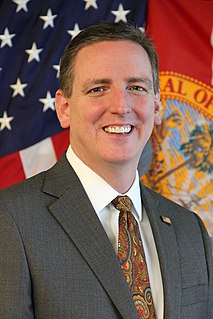A Quote by Janet Yellen
Expanded credit access has helped households maintain living standards when suffering job loss, illness, or other unexpected contingencies.
Related Quotes
what is joy without sorrow? what is success without failure? what is a win without a loss? what is health without illness? you have to experience each if you are to appreciate the other. there is always going to be suffering. it’s how you look at your suffering, how you deal with it, that will define you.
Banks and other providers of credit to households have been competing vigorously to expand or protect their market share. In the process, lending standards have been progressively eroded so that lenders are now engaging in practices that would have been regarded as out of the question five or ten years ago.
From our limited vantage point, our lives are marked by an endless series of contingencies. We frequently find ourselves, instead of acting as we planned, reacting to an unexpected turn of events. We make plans but are often forced to change those plans. But there are no contingencies with God. Our unexpected, forced change of plans is a part of His plan. God is never surprised; never caught off guard; never frustrated by unexpected developments. God does as He pleases and that which pleases Him is always for His glory and our good.
We judged that a sudden, disorderly failure of Bear would have brought with it unpredictable but severe consequences for the functioning of the broader financial system and the broader economy, with lower equity prices, further downward pressure on home values, and less access to credit for companies and households.
One day, because they realize for some reason or other that they must stop credit expansion, the banks do stop creating new credit to lend. Then the firms that have expanded cannot get credit to pay for the factors of production necessary for the completion of the investment projects which they have already committed themselves. Because they cannot pay their bills, they sell off their inventories cheap. Then comes the panic, the breakdown. And the depression starts.


































